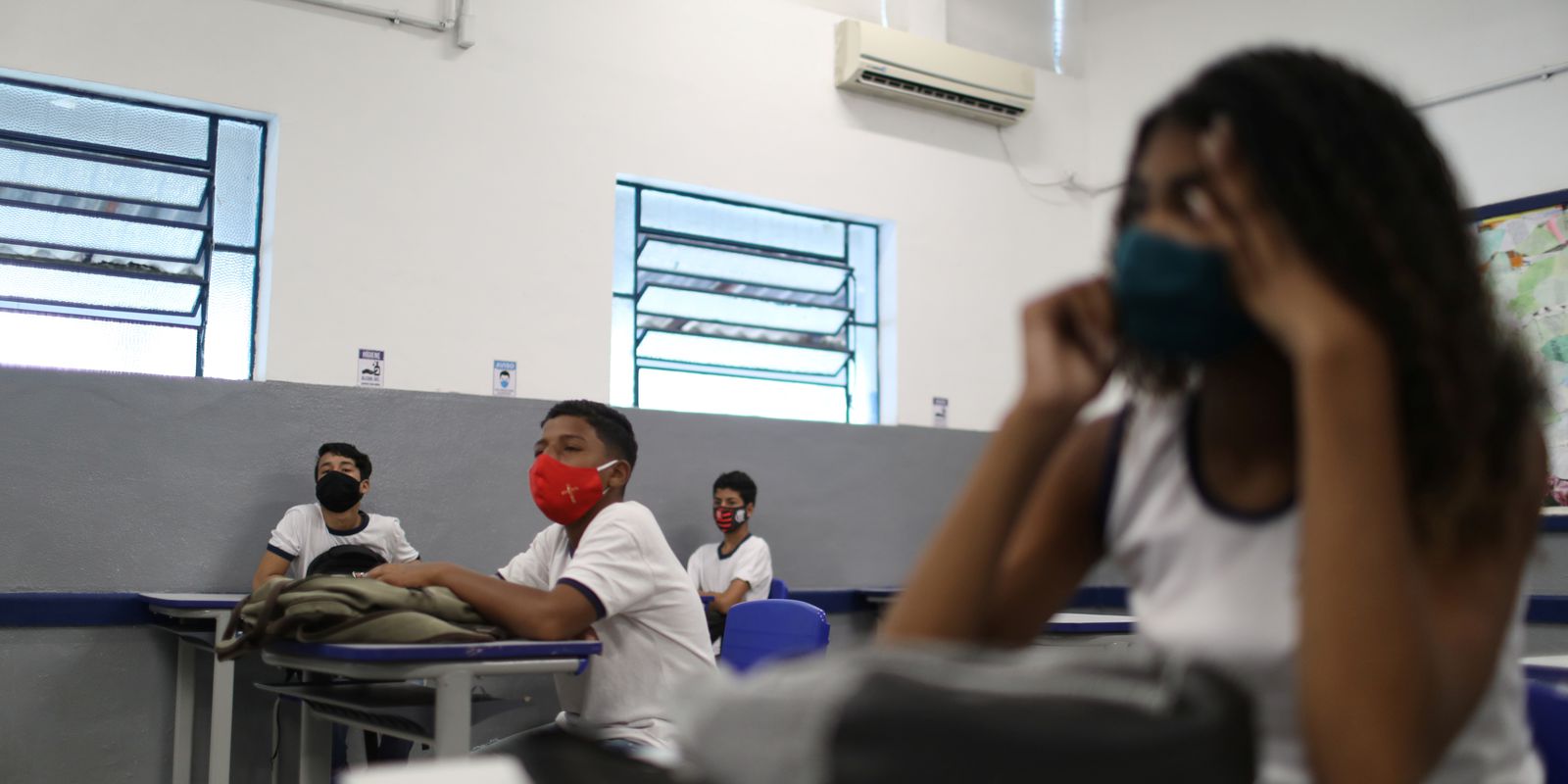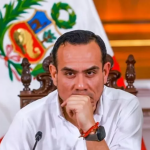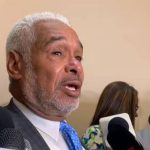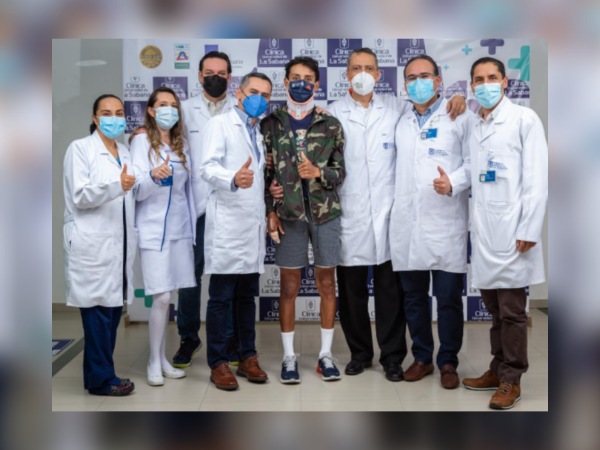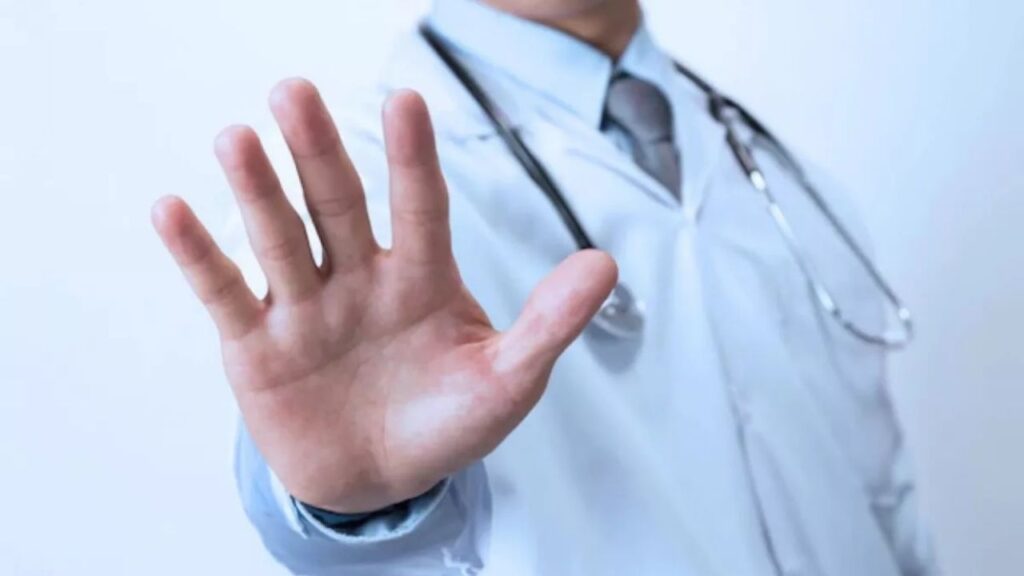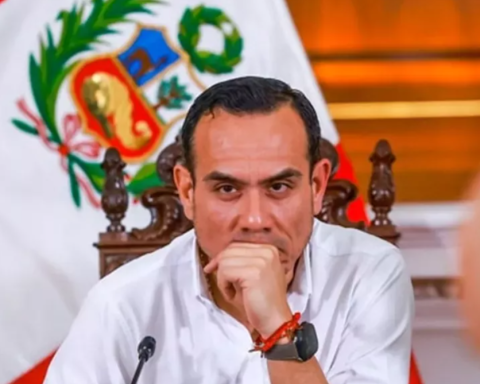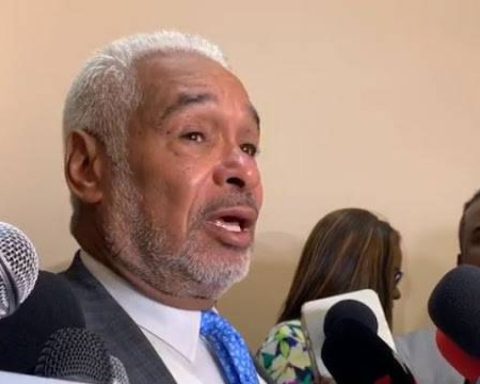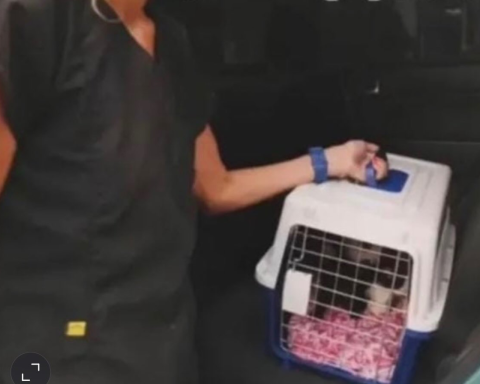The safety of returning to face-to-face classes amid the wave of covid-19 transmission caused by the Ômicron variant depends on the engagement of the entire school community, including those responsible, emphasize the Oswaldo Cruz Foundation (Fiocruz) and the Brazilian Society of Pediatrics. In addition to being aware of symptoms and protocols, parents should vaccinate themselves, vaccinate their children and seek to participate in prevention on a daily basis.
Coordinator of the work group created at Fiocruz to produce recommendations on the prevention of covid-19 in the school environment, pulmonologist Patrícia Canto says that parents cannot delegate responsibilities only to the school.
“We can’t expect the teacher to assume all the functions. Children learn a lot by example, with their parents wearing a mask, gel alcohol and explaining what is right and wrong at this moment of covid. Of course, the teacher has this role in the classroom, but it is essential that the family play its role in this orientation”.
Vaccination
The researcher adds that vaccination is one of the main tools to make the school environment safer, because immunized people, even when contaminated, tend to have lower viral loads and transmit the disease less.
“It is important that we do campaigns for parents to take their children so that they can be vaccinated and it is important that parents are vaccinated, because this is also a way of protecting children”, he says. “The more people immunized, the less the virus will circulate”.
Patricia advocates that children be vaccinated as soon as vaccines are available for them in the calendar of each municipality, but recommends that parents should not condition the return to face-to-face classes to complete immunization or wait for some period for the vaccines already applied to take effect.
“We have been very concerned about the return to face-to-face classes due to the high transmissibility of the Ômicron variant, but we understand that children and adolescents were heavily penalized because of being away from face-to-face classes for so long. This has serious consequences for the psychosocial and even nutritional development, because many children are dependent on nutrition in schools”, he said, citing that the school is also a space for social protection against various forms of violence. “At this moment, we understand that children are more vulnerable by the absence of face-to-face classes than by the risk of serious forms of the disease”.
Despite this, she points out that children can, yes, have severe forms and even die from covid-19, which justifies the importance of vaccination and other prevention measures. In addition, the pulmonologist explains that children with specific health conditions such as congenital diseases or immunosuppression should have their cases analyzed by the doctor who accompanies their case, due to the increased risk of serious forms of covid-19.
School community pact
The president of the Scientific Department of Immunizations of the Brazilian Society of Pediatrics, Renato Kfouri, also considers that the safe return to face-to-face classes depends on a pact that involves the entire school community and considers vaccines as one of the main reducers of the risk offered by the disease.
“Nothing is 100% safe or 100% risky. It is necessary to understand that risk depends on five pillars: being vaccinated or not, wearing a mask or not, being or not very close to each other, being in a closed or ventilated environment, and hand and place hygiene. Based on these principles we will be able to assess the risks of face-to-face classes”, he says. “Vaccines are an additional prevention tool, they must be applied as they arrive, but it is not a condition [para as aulas presenciais]”.
For the immunologist, the benefits of face-to-face education are enormous and the risks are no greater than other situations that have already become part of everyday life, such as restaurants, gyms and family gatherings.
“The school reflects more what is happening in society than it is a driving force of cases. Studies and experience with two years of the pandemic show that the school does not increase the number of transmissions. We don’t need the school to have more cases, the disease circulates outside the school as well, and the same risk that this child runs within his family and in the circle of friends, where he lives, where he plays and where he attends, is similar to the risk at school”.
Attention to symptoms
In addition to teaching how to protect yourself from the disease and seek vaccination, one of the most important points for parents is attention to flu symptoms in children, such as nasal obstruction, fever, cough, headache and diarrhea. The pulmonologist at Fiocruz asks those responsible to commit not to take symptomatic children or children with confirmed cases in people from the same household to school.
“It’s common for parents to think that with a low fever or a runny nose they can send them to school, but at that moment, it’s important that everyone is aware that any symptom is the same as not going to school and communicate the coordination so that take action”, says Patrícia.
The Municipal Health Department of Rio de Janeiro, where face-to-face classes resume this week, recommends in its protocol that those responsible check the temperature of students before going to school, and, if the result is more than 37.5 degrees Celsius, they must stay at home and the school must be communicated. Students, guardians and employees who have at least two flu-like symptoms, such as nasal obstruction, diarrhea, chills, sore throat, headache, cough, runny nose and changes in taste and smell.
“The risk of transmission is always reduced if everyone is wearing masks and if there is adequate ventilation. So, we do not recommend the suspension of classes for a class with less than three confirmed cases”, explains the pulmonologist, who says that other parents should be instructed to observe the symptoms.
Renato Kfouri also recommends that the ideal is to test all students in a class in which there are positive cases, so that the detection of asymptomatic positives can stop transmission.
“Parents must be attentive and committed to not sending symptomatic children to classrooms. And schools must offer conditions, within their possibilities, of greater distance possible and training of all education professionals in relation to the use of mask, hygiene hands, keep windows open, do outdoor activities whenever possible and avoid meetings and crowds”.
The researchers agree that schools should arrange different meal times for each class, so that students eat only with those they already have contact with. At other times, it is important that the use of effective masks, such as surgical ones, is constant.
The representative of the Brazilian Society of Pediatrics recognizes that the possibility of adopting the ideal prevention measures depends on the physical conditions of each school, which is also linked to inequality in access to education.
“In Brazil, unfortunately, there are schools in which there is no possibility of having children with distance or in a ventilated room”, he says. “What further accentuates this inequality is that children who attend schools with less distance conditions are precisely those who most depend on the school for food and domestic security, for their development, and are the ones who have less access to remote learning. Of Quality”.
